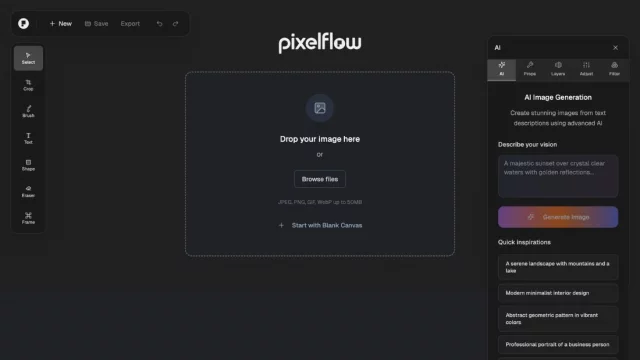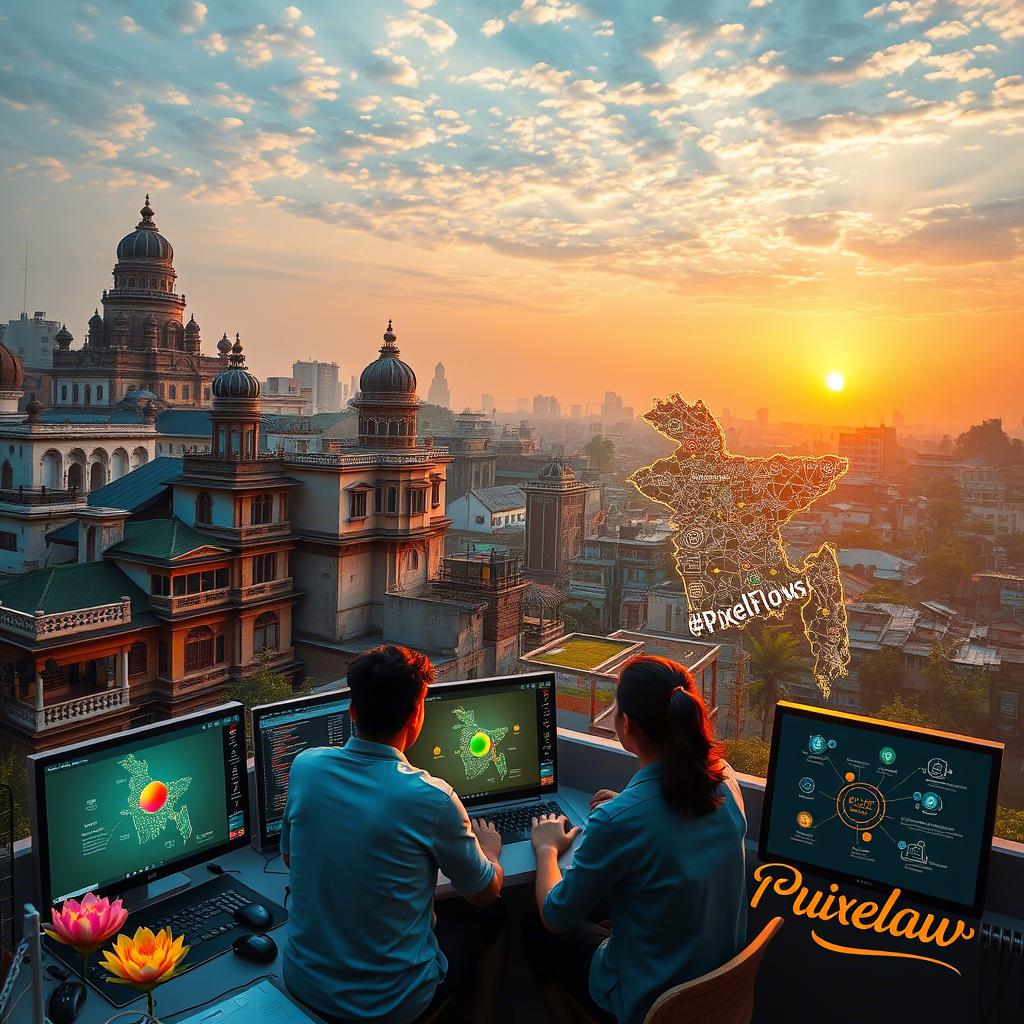In a remarkable achievement for Bangladesh’s burgeoning tech scene, Rezaul Karim Arif, a talented Bangladeshi developer, has clinched the top prize at the AI Showdown Hackathon, a prestigious global competition organized by the Swedish AI-powered platform Lovable, with backing from tech giants Google, OpenAI, and Anthropic. Arif’s innovative project, PixelFlow, an AI-powered mood board generator, outshone 5,118 entries from developers worldwide, earning him a total of US$20,000 in prize money. This victory not only highlights Arif’s ingenuity but also underscores the potential of Bangladesh’s tech talent to make a global impact, offering a beacon of hope for the country’s AI community and inspiring a new wave of innovation.

The Journey to Victory
The AI Showdown Hackathon, held on June 18, 2025, challenged developers to create functional AI-driven applications within a grueling 24-hour timeframe. Arif, a self-taught coder with a passion for leveraging AI to solve real-world problems, designed PixelFlow as an “infinite canvas” for creative expression. The platform allows users to generate mood boards—visual collections of images, colors, and designs—using AI to streamline the creative process for designers, marketers, and artists. By integrating Anthropic’s Claude 4 model, PixelFlow demonstrated exceptional depth and execution, earning it the Anthropic track award of US$10,000 before being crowned the overall winner, adding another US$10,000 to Arif’s prize.
“I was shocked when I heard I won,” Arif shared in a statement to Dhaka Tribune. “This project shows the capability and pushes the boundaries of AI tools nowadays, and anyone can build powerful things.” His humility belies the sophistication of PixelFlow, which was built using a coordinated team of custom AI agents, each handling roles such as product manager, QA tester, designer, and developer. This innovative approach to software engineering allowed Arif to deliver a polished product under intense time constraints, impressing judges like Marc Louvion, John Rush, and Tibo Maker.

PixelFlow: A Game-Changer for Creativity
PixelFlow’s appeal lies in its simplicity and versatility. By harnessing AI to generate visually cohesive mood boards, it addresses a pain point for creatives who often spend hours curating inspiration manually. The platform’s no-code and low-code interfaces make it accessible to non-technical users, positioning it as a potential disruptor in the creative tech ecosystem. Arif envisions PixelFlow evolving into a Software as a Service (SaaS) product, tapping into the growing demand for AI-driven tools in design and marketing.
The global recognition of PixelFlow has sparked excitement within the AI community, with experts praising its potential to democratize creativity. “Applications like PixelFlow show how AI can empower individuals to express their ideas without technical barriers,” said Dr. Emma Lindstrom, a judge from Lovable. “This is the future of AI-assisted development—accessible, intuitive, and impactful.” The platform’s success also highlights the increasing role of AI in creative industries, where tools like PixelFlow can enhance productivity and innovation.
Impact on Bangladesh’s Tech Ecosystem
Arif’s victory is a watershed moment for Bangladesh, a country often overshadowed by regional tech hubs like India and Southeast Asia. While Bangladesh’s tech sector has grown steadily, with a robust business process outsourcing (BPO) industry and a young, tech-savvy population, it has lagged in global AI innovation. PixelFlow’s triumph serves as a wake-up call, proving that Bangladeshi talent can compete on the world stage.
At the recent BPO Summit Bangladesh 2025, industry leaders emphasized the need for AI adoption to remain competitive globally. Arif’s success aligns with this narrative, showcasing how homegrown AI solutions can elevate Bangladesh’s reputation. “Rezaul’s win is a proof of concept for our tech talent,” said Taiyeb Khan, a summit speaker. “If we invest in AI education and infrastructure, Bangladesh can become a hub for innovation.”

The economic implications are significant. With PixelFlow poised to enter the SaaS market, it could generate revenue and create jobs, contributing to Bangladesh’s GDP. The country’s tech sector, currently hampered by economic challenges like low private-sector credit growth and high borrowing rates, could benefit from such success stories to attract investment. Arif’s plan to share his winnings to inspire more Bangladeshis to explore AI further amplifies this impact, fostering a culture of innovation and entrepreneurship.
Benefits for the Global AI Community
PixelFlow’s success resonates beyond Bangladesh, offering lessons for the global AI community. First, it demonstrates the power of collaborative AI development. Arif’s use of custom AI agents to handle diverse roles mirrors emerging trends in software engineering, where AI augments human capabilities to accelerate development. This approach could inspire other developers to experiment with AI-driven workflows, enhancing productivity across industries.
Second, PixelFlow’s focus on accessibility aligns with the push for inclusive AI. By enabling non-coders to create professional-grade mood boards, it lowers barriers to entry, encouraging diverse participation in tech. This is particularly relevant in 2025, as AI adoption accelerates in sectors like education, healthcare, and finance. Tools like PixelFlow can empower small businesses and individuals, leveling the playing field in a tech-driven economy.
Finally, Arif’s win highlights the importance of hackathons as incubators for innovation. Events like the AI Showdown provide platforms for developers to test ideas, gain visibility, and attract funding. For the AI community, such competitions foster collaboration and push the boundaries of what’s possible, driving the development of practical, user-centric applications.
Challenges and Opportunities for Bangladesh
Despite the optimism, Bangladesh faces hurdles in capitalizing on Arif’s success. The country’s AI regulatory framework, including the Cyber Security Act 2023 and the 2025 Ordinance, is not tailored to address AI complexities, such as generative models or algorithmic transparency. Without clear policies, scaling AI startups like PixelFlow could be challenging. Experts urge the government to prioritize AI regulation and investment in education to sustain momentum.
Moreover, Bangladesh’s economic stagnation, marked by a decade-low private-sector credit growth of 7% in Q1 2025, poses a barrier to tech growth. However, Arif’s victory could attract foreign investors and inspire public-private partnerships to bolster the tech ecosystem. Initiatives like ISRO’s Bharatiya Antariksh Hackathon 2025 show how targeted challenges can nurture talent, and Bangladesh could adopt similar models to cultivate AI expertise.

Rezaul Karim Arif’s journey from a self-taught coder to a global hackathon champion is a testament to resilience and ingenuity. His immediate focus is not on personal gain but on inspiring others. “I want to show Bangladeshis that AI is within our reach,” he said. “With the right tools and mindset, we can build solutions that change the world.”
For Bangladesh, PixelFlow’s success is a call to action. By investing in AI education, fostering startup ecosystems, and addressing regulatory gaps, the country can harness its vast tech talent to compete globally. For the world, Arif’s story is a reminder that innovation knows no borders, and with AI as a catalyst, anyone, anywhere, can make a difference.
As PixelFlow prepares to enter the SaaS market, the AI community watches with anticipation. Will it become the next big thing in creative tech? Only time will tell, but one thing is certain: Rezaul Karim Arif has put Bangladesh on the AI map, and the journey is just beginning.
Copyrights: Dhaka ai



